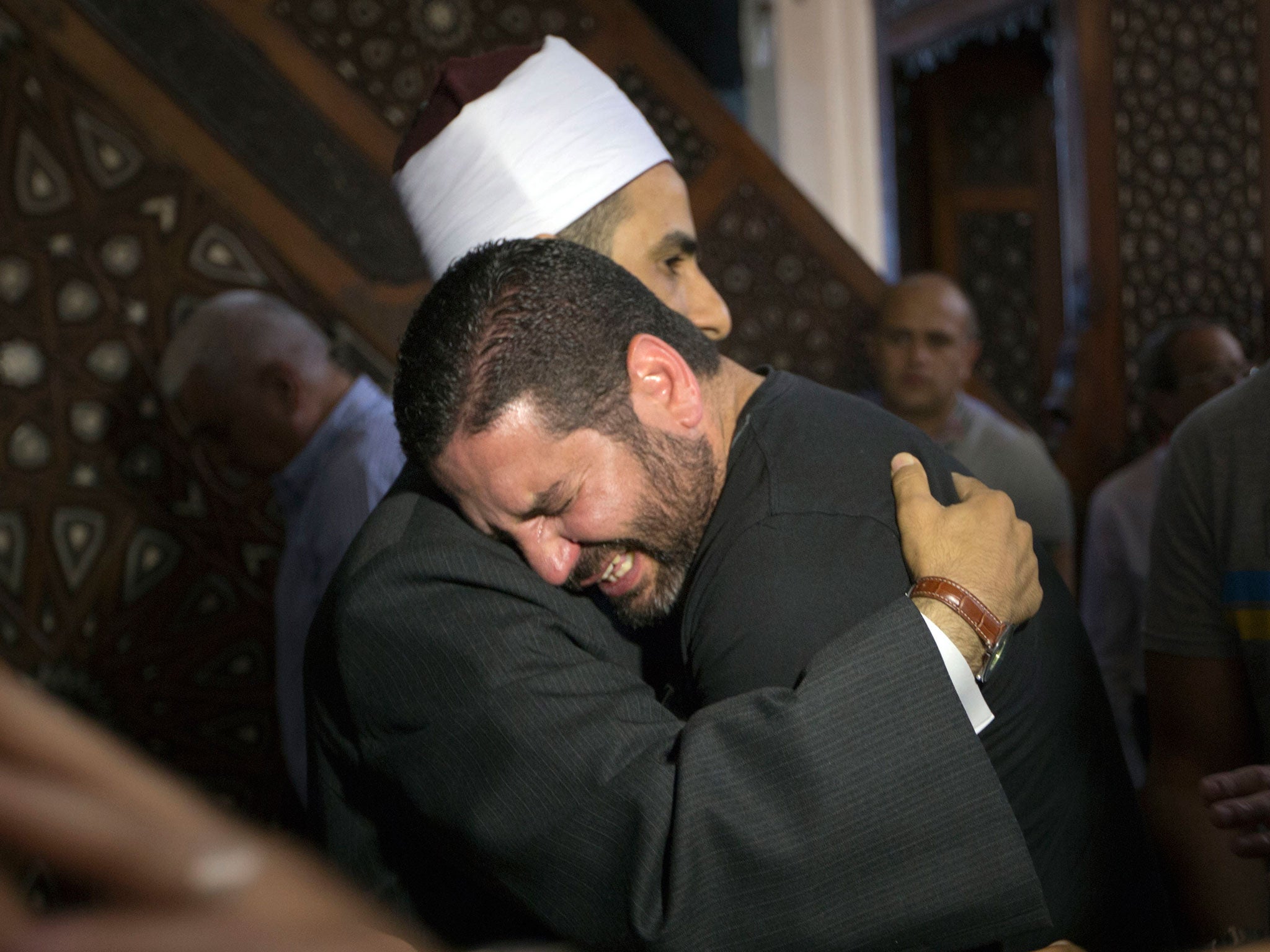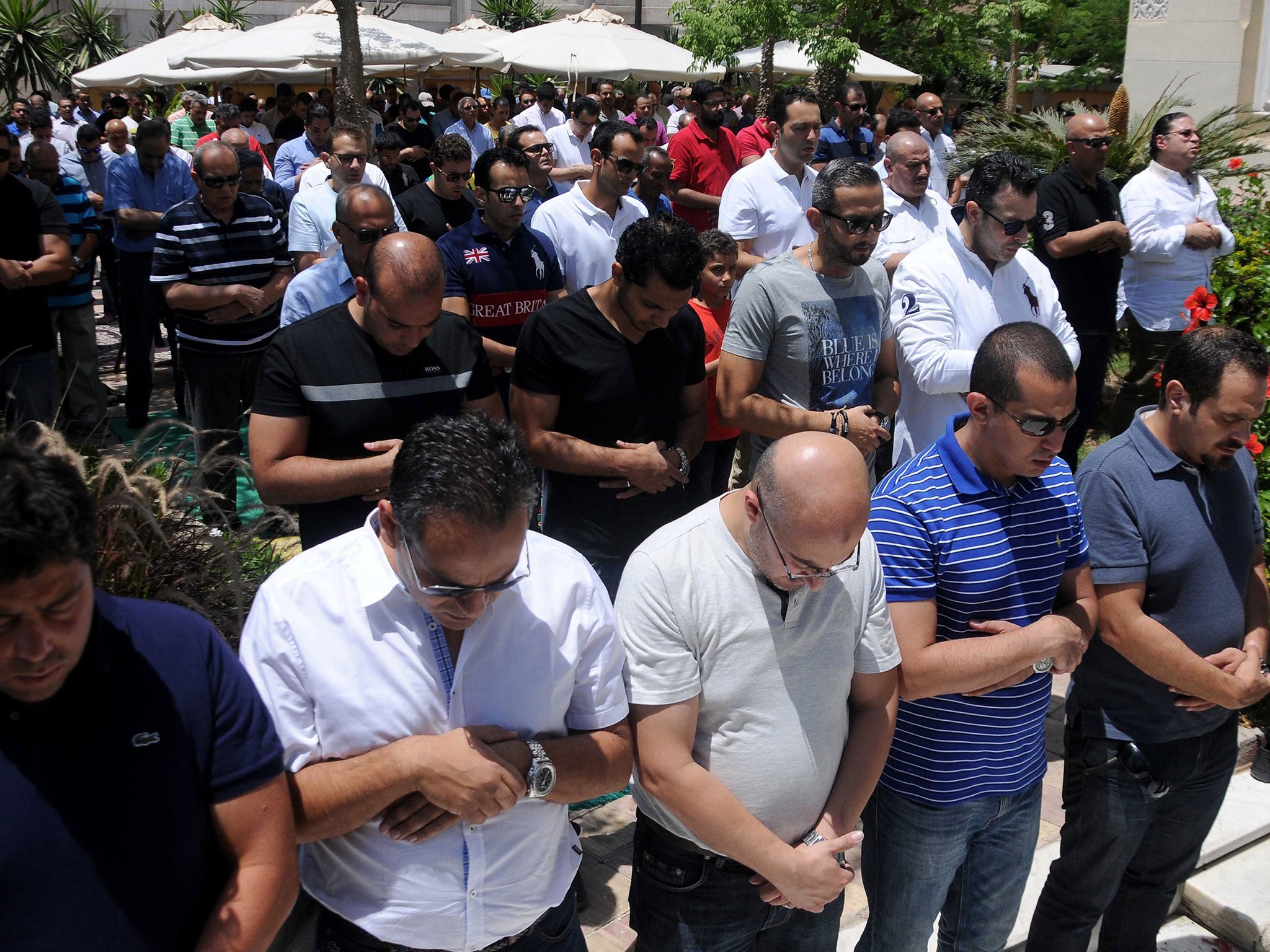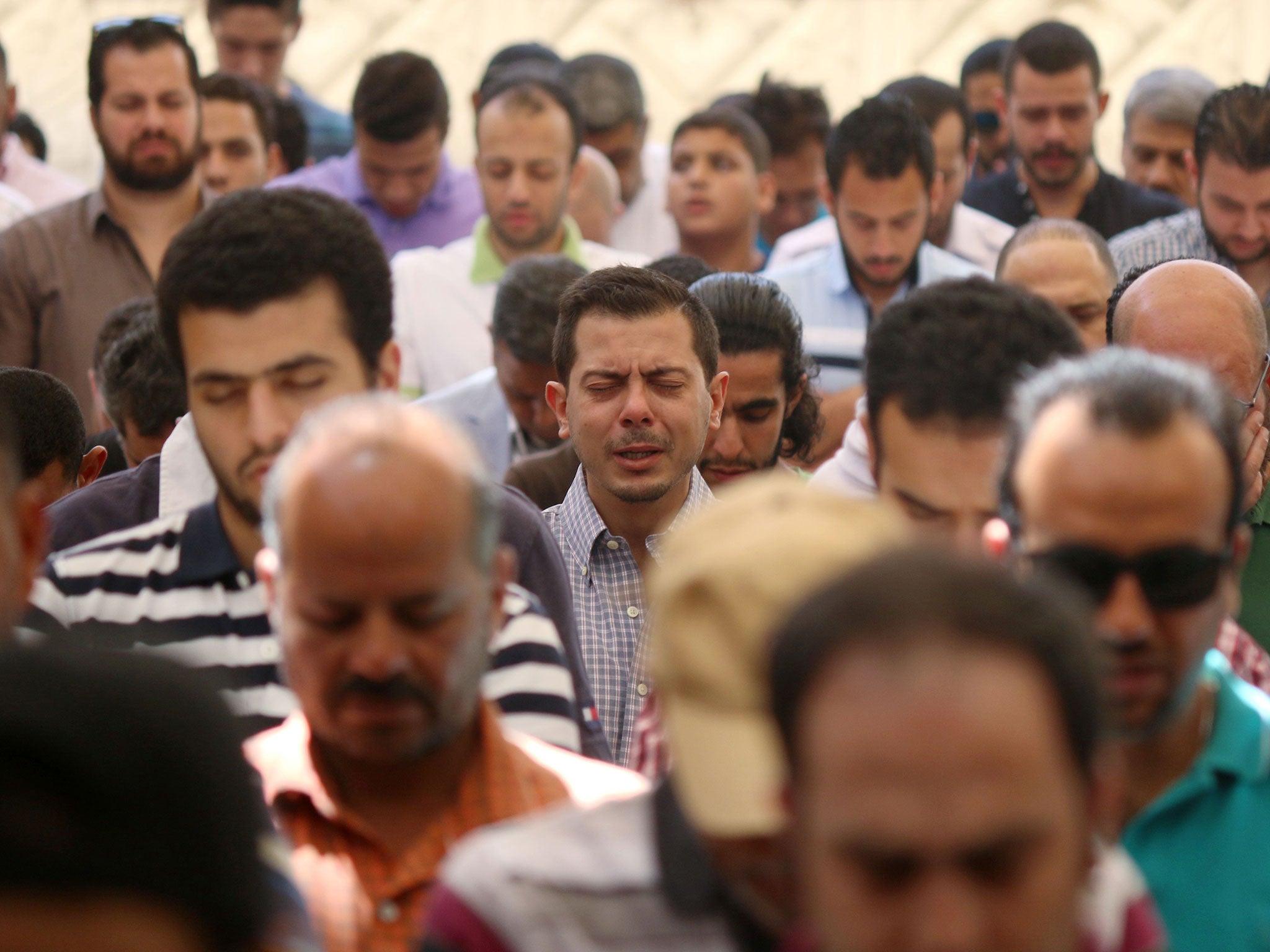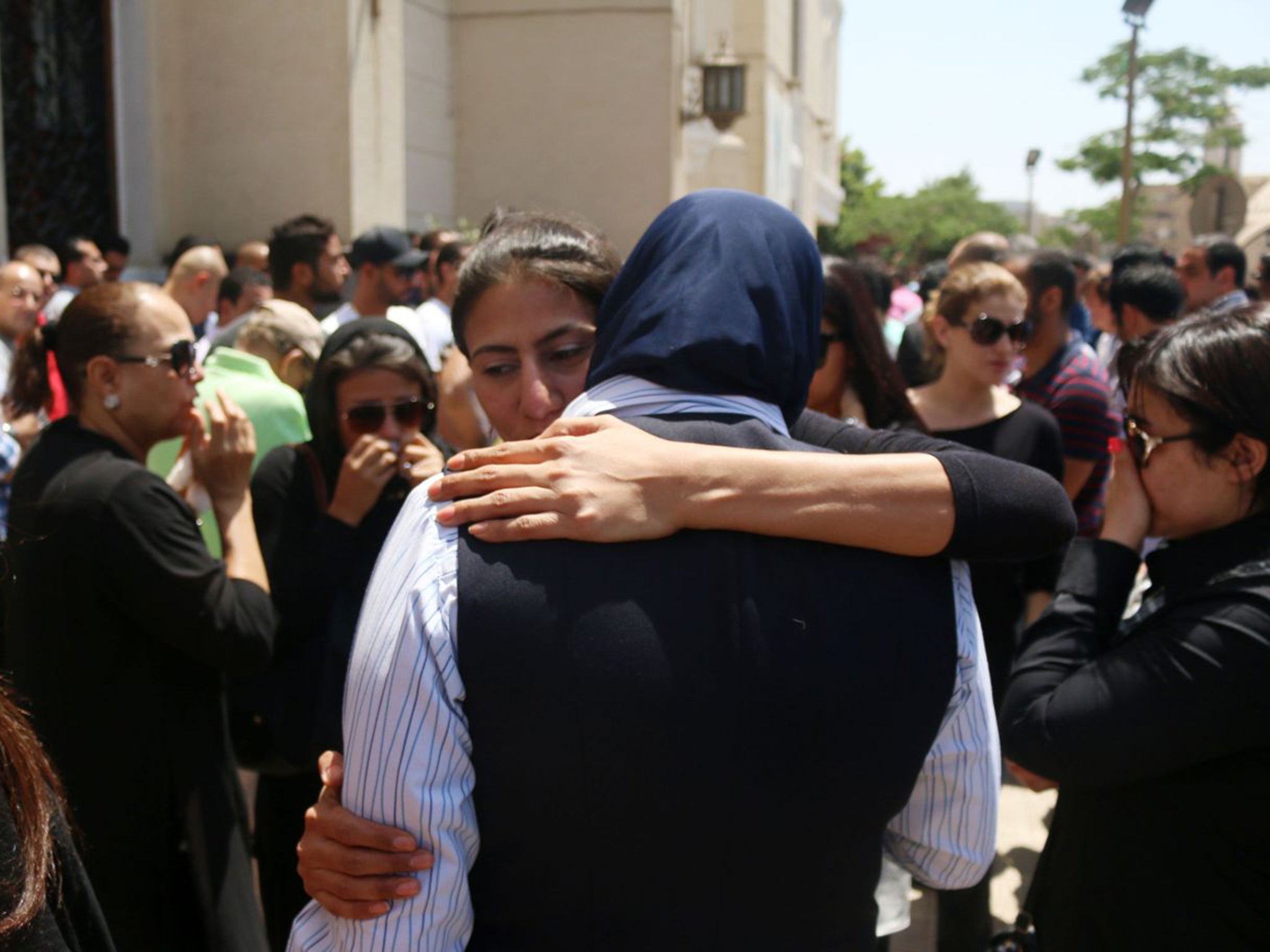EgyptAir flight MS804 crash: With no bodies to bury, families mourn their loved ones at memorial service in Cairo
Some relatives have complained of a lack of information from authorities as investigations continue

Your support helps us to tell the story
From reproductive rights to climate change to Big Tech, The Independent is on the ground when the story is developing. Whether it's investigating the financials of Elon Musk's pro-Trump PAC or producing our latest documentary, 'The A Word', which shines a light on the American women fighting for reproductive rights, we know how important it is to parse out the facts from the messaging.
At such a critical moment in US history, we need reporters on the ground. Your donation allows us to keep sending journalists to speak to both sides of the story.
The Independent is trusted by Americans across the entire political spectrum. And unlike many other quality news outlets, we choose not to lock Americans out of our reporting and analysis with paywalls. We believe quality journalism should be available to everyone, paid for by those who can afford it.
Your support makes all the difference.Relatives of the victims on board EgpytAir flight MS804 have held an emotional memorial service after being told their loved ones were dead.
Hundreds of people gathered at the Abu Bakr El Seddik Mosque in Cairo to mourn the 66 passengers and crew killed in the disaster.
With no bodies to bury and desperate for answers, they said prayers for the dead on Friday.

Some people were overcome during the service, while others broke down outside the mosque, with pictures showing families hugging each other and attempting to offer comfort.
Ayman Ishak Michael Dawood, who lost his older brother Wifqi in the crash, cried as he described his loss.
“I lost my brother, he is married, he has a boy and a girl,” he told the BBC.
“He lives in France and he was still young. He was the backbone of our family, he was loved by everyone.”
Like several other families, he felt frustrated at the lack of information on the crash.

“We have asked them for more information but there isn’t enough information,” he added. “We need to find the bodies so they can get them to us. We need to know what’s going on.”
Among the victims was Richard Osman, a father-of-two from Wales, and a Frenchman who almost missed the fated flight after losing his passport.
EgyptAir said 30 Egyptians, 15 French passengers, two Iraqis, and one passenger from Britain, Sudan, Chad, Portugal, Algeria, Canada, Belgium, Kuwait and Saudi Arabia were on board.
Memorial services have been held around the world for the victims, including in Saskatoon for Canadian passenger Marwa Hamdy and in Amiens, France, for Egyptian man Ahmed Helal.
The French foreign minister, Jean-Marc Ayrault, joined EgyptAir officials, airport representatives and the Egyptian ambassador in a meeting with around 100 family members in Paris on Saturday.

He said they expressed “profound compassion“ over the crash, adding: ”All hypotheses are being examined – none are being favoured.“
French air accident investigators are in Cairo along with experts from plane manufacturers Airbus and other officials as attempts to find the cause of the crash continue.
The first debris was found on Friday as military planes, helicopters and ships continued to scour the area between the Greek island of Crete and the Egypt coast, where the plane disappeared from radar.
Human remains, seats, luggage and seats were spotted floating around 180 miles north of Alexandria and are being analysed to provide clues to the cause of the disaster.
Photos of the wreckage published by the Egyptian military showed mangled parts of the fuselage, life jackets and passengers' belongings.
One picture appeared to show part of the Airbus A320’s metal body, while another showed foam from passengers’ seats and an uninflated life jacket.
Phil Giles, a former air safety investigator who worked on the Lockerbie Bombing case, told The Independent that the wreckage images added to mounting indications the plane broke up mid-air.
“All the evidence so far, including the pictures, indicates that the aircraft broke up at altitude rather than when it impacted the sea,” he said.
“Modern aircraft such as the A320 don't have a habit of suffering major structural failure unless there is some external factor like a BUK missile as in the case of MH17, or an internal device.”
Investigators are hoping for the swift discovery of the plane’s flight recorders, known as black boxes, which hold detailed data on its last moments.
Smoke was detected in multiple parts of the aircraft moments before it plummeted into the sea, analysis of automatic messages has shown, but the cause of the crash remains unclear.
The search continues, with a French navy patrol boat equipped with sonar on its way from the port of Toulon.
The scheduled flight left Charles de Gaulle at 11.09pm on Wednesday (10.09 BST) and radar shows it continued on its normal path over Italy and Greece before starting to cross the Mediterranean.
The last signal was picked up by Greek air traffic control at 2.27am (1.27am BST) and the country’s civil aviation ministry said the previously “jocund” pilot did not respond to contact attempts as the plane headed towards Egyptian airspace.
Egyptian authorities lost contact with the flight at around 2.30am (1.30am BST), 45 minutes before it was due to land at Cairo International Airport.
Join our commenting forum
Join thought-provoking conversations, follow other Independent readers and see their replies
Comments